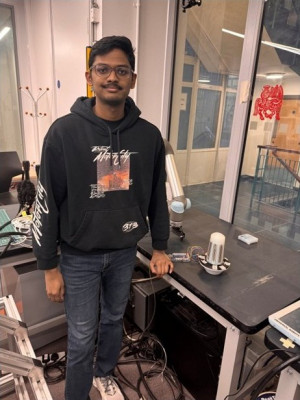Welcome to the School of Engineering and Materials Science
The School of Engineering and Materials Science provides outstanding degree programmes coupled with internationally leading research which is reflected in all our undergraduate programmes. Our taught postgraduate programmes are similarly first class and provide students with a fantastic opportunity to engage with cutting-edge research in: Bioengineering, Intelligent Transport, Sustainable Engineering and Engineering and Materials Education. Our extensive industrial connections provide graduates with excellent employability in stimulating and well-paid careers.
Events and Seminars
 Wed 4 Mar 2026 Wed 4 Mar 202615:00 - 16:00 | SEMS Seminar Series: Prof Holger Babinsky, University of Cambridge |
| Mon 9 - Fri 13 Mar 2026 | Skills & Employability (SkEmp) Week  |
 Tue 10 Mar 2026 Tue 10 Mar 202613:00 - 15:30 | The Power of AI to Transform Careers  |
 Wed 11 Mar 2026 Wed 11 Mar 202612:30 - 17:00 | Industrial Liaison Forum |
| Wed 17 - Fri 19 Jun 2026 | The Advanced Functional Polymers for Medicine 2026 (AFPM 2026) |
Recent publications
- Routes for reuse of aged pressure-driven membranes: Current status and future perspectives
Seibel FI, Brião VB, Graciola S, Pontié M, Hannachi A, Shabani M, Alyoun EM, Shaheed MH
Desalination, Elsevier vol. 622
01-03-2026 - Machine learning-enabled uncertainty quantification for thermo-catalytic reactors: A study on fugitive methane oxidation in monolith reactors
Soyler I, Üstün CE, Paykani A, Jiang X, Karimi N
Fuel, Elsevier vol. 407
01-03-2026 - Hindered sedimentation and rheological behaviour of concentrated microalgal suspensions: experimentation and modelling
Wu J, Cagney N, Meeten GH, Jones TGJ, Boek ES
Separation and Purification Technology, Elsevier vol. 384
01-03-2026












